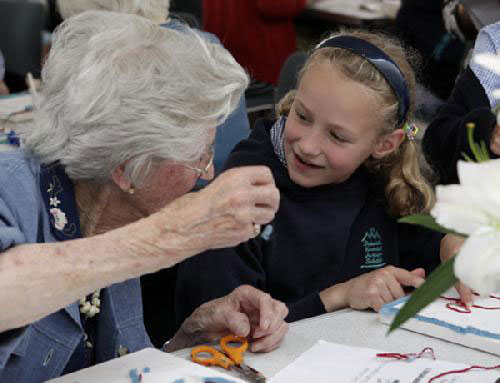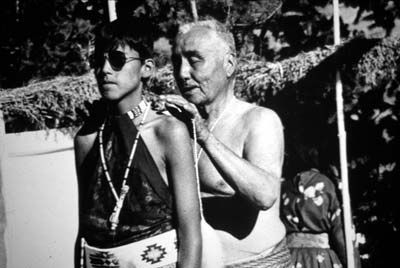

Huckleberries Gained During a Healing Journey
Resuscitated from my bones, through my veins and
palpitating heart, was a new life and a
keen awareness. The most powerful of awakenings.
Snchitsu’umshtsn word, literally meaning “fellow sufferer” or what is called “empathy”
The capacity (intellectual and/or affective) to project one's self into another's experience, and better appreciate that experience from another's perspective.



Consider the derivation of the English word “empathy." It is from the Greek word ἐμπάθεια or empatheia, meaning “physical affection or passion,” having its roots in ἐν (en, “in," "at”) and πάθος (pathos, “suffering” with “passion”) — “in suffering.”
Confucian and Taoist practice: 仁 - rén - Chinese calligraphy for "a person" and "two" - embraces vertical = yang, and horizontal = yin - "one to two and two to one" = two becoming as one - also translated, "benevolence" or "humaneness" - a necessary precondition for Wu Wei and access to Ch'i
From the Buddha, in order to address the pervasive state in the human condition of dukkha "suffering," "in pain" and achieve harmony and eventually nirvana/sunyata, upon his awakening and expressed in his the Eightfold Path and Middle Way: mettā "loving-kindness" - karuna "compassion" - mudita "sympathetic joy" and upekkha "equanimity"
Empathy, that capacity essential to and embedded within the
University – General Education: Learning Outcomes
1.
LEARN and INTEGRATE
–
Through independent learning and collaborative study, attain, use, and develop
knowledge in the arts, humanities, sciences, and
social sciences, with disciplinary specialization and the
ability to integrate information across
disciplines.
Distinguish Differing Disciplinary Approaches, and Applying a Multidisciplinary Interpretative Method ("Eye Juggling"). You will gain an academic methodology based upon the disciplines of humanities and social sciences for interpreting, appreciating, and understanding differing ways of viewing and knowing the religions of the world, and of expressing divergent cultural, religious, and aesthetic values. As an interpretative method you will gain an ability to develop your skills in reflexivity and reflectivity, as well as the skills to reflect upon, think critically and creatively, and integrate information across diverse disciplines and varied points of view.
Understanding
and an Appreciation
of Human Diversity
as well as our
Shared Humanity. You will gain a heightened
understanding of and appreciation for the many of the great Indigenous
communities of the world, along with their quintessential teachings and truths,
as well as their cultural, aesthetic (art and architecture), literary, religious and
philosophical expressions.
Each community is to be appreciated for its special
uniqueness and individuality, yet there will be thread of shared humanity, of
what is universal in our diverse experiences. We will attempt to
view the world from the perspectives of those we study.
Improve Oral and Written Communication Skills.
You will enhance your skills in computer use, in
note-taking abilities, actively listening and reading, develop a working
knowledge of university library resources, and develop successful time
management.
You will enhance your skills in conveying ideas coherently
and effectively in written and oral forms, including storytelling, develop interpersonal skills
including participating in class discussions, posing thoughtful questions,
listening and responding to others, and accomplish tasks through group
collaborative work.
You
will also enhance your ability to effectively gather data from a variety of
sources, e.g., texts, public documents, interviews, panels, surveys observation,
internet sites, to support your oral and written arguments and ideas.
4. CLARIFY PURSPOSE and PERSPECTIVE – Explore one’s life purpose and meaning through transformational experiences that foster an understanding of self, relationships, and diverse global perspectives.
Understanding and an Appreciation of Your Own Spiritual/Philosophical/Cultural Background in Relationship to Global Community. By juxtaposing that which is culturally and religiously distinct alongside that which is immediate though often veiled, the contours of the landscape of one’s own cultural and religious world view and values becomes clearer. You will better be able to understand yourself in relation to the many “strangers” in our global community. You will gain a heightened understanding of your own unique worldview, as well as realize the common threads of our shared and universal humanity, within our global communities.
5. PRATICE CITIZENSHIP – Apply principles of ethical leadership, collaborative engagement, socially responsible behavior, respect for diversity in an interdependent world, and a service-oriented commitment to advance and sustain local and global communities.
Foster
a Respect and
Ability to Collaborate with Diverse Others. In
our culturally and religiously pluralistic world it is critical that we develop
a tolerance of and respect for the varied communities of other peoples.
An
appreciation and understanding of the varied communities in this course is an
essential first step in facilitating a heightened ability to effectively
communicate, cooperate, and collaborate with those who may differ from us.
It is an essential to our ability to "give back" and help others.
In this seminar, you will also develop your ability
in respecting as well as your skills in civic engagement and collaborating with
diverse communities, as developed pedagogically within the seminar.
Review of the University of Idaho Learning Outcomes